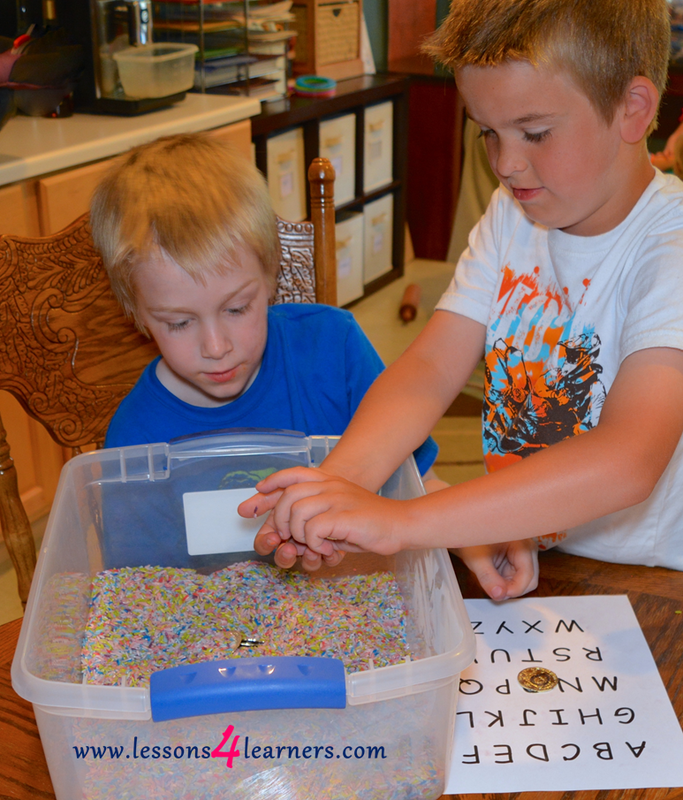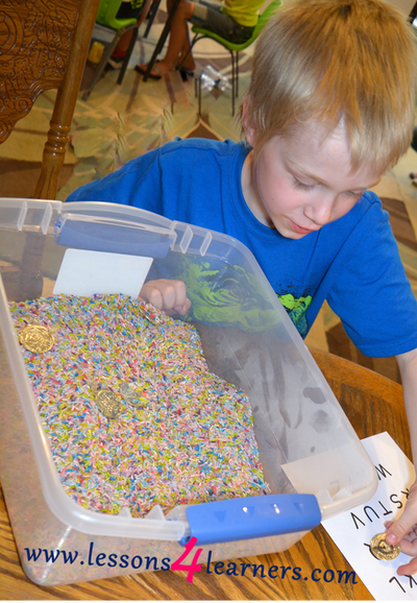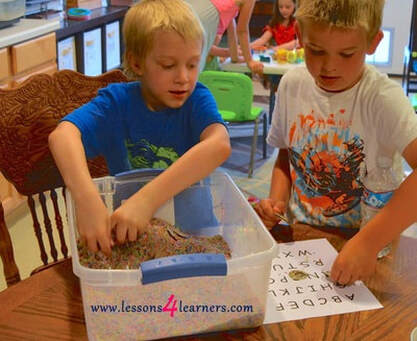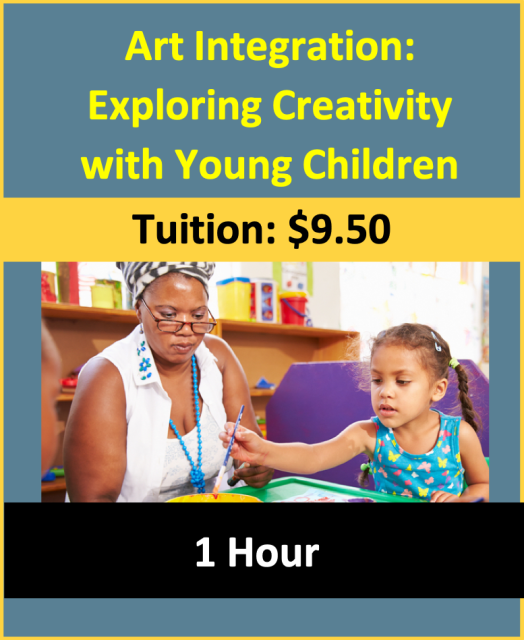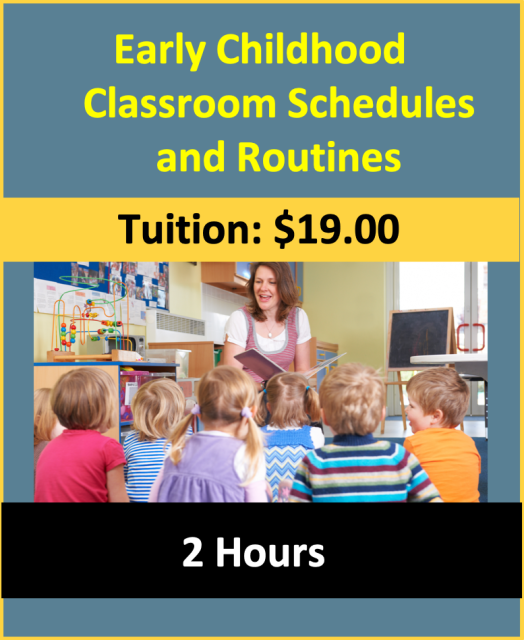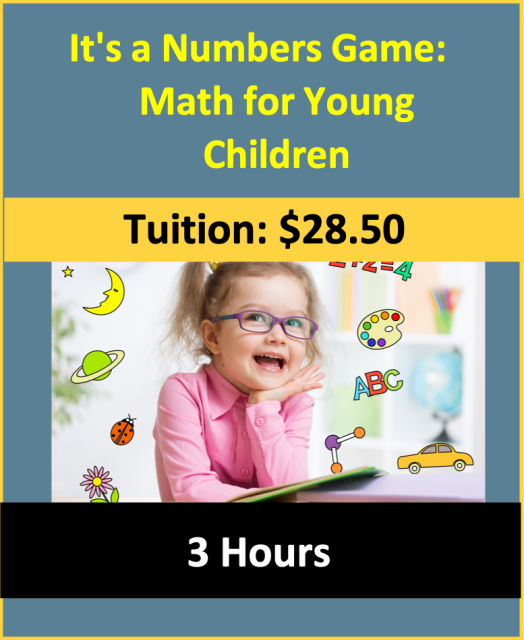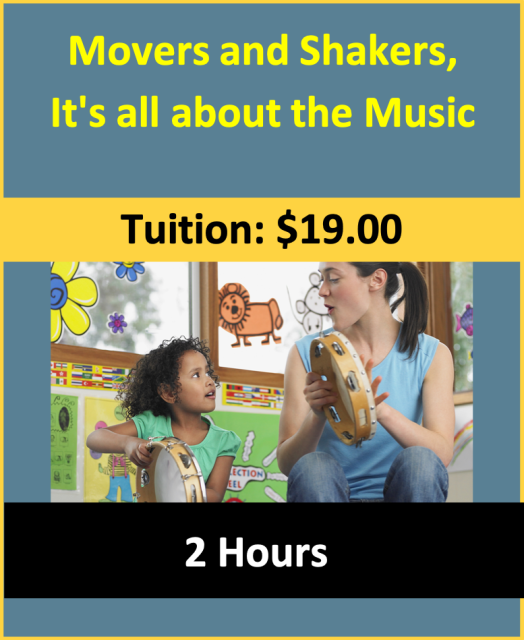Coin Letter Matching
Lesson Plan:
|
Activity:
Coin Letter Matching
Lesson plan developed by Ms. Erika Geelhoed, BA Ed
Age Group:
* Lesson plan objective and assessment can be adapted to use this activity with school-age children.
Objectives:
Children will:
|
|
II.5.2a
Materials:
|
Procedure:
- To make colored rice or noodles - take several cups of rice/noodles and put in a ziplock bag along with a few drops of desired food coloring then allow to dry overnight
- Using a black permanent marker, label coins with letters of the alphabet (you can narrow it down to the letters you are currently working on if appropriate).
- Fill the bin with your dried rice/noodles and coins.
- Invite the children to pick coins out of the rice/noodles and place them on the corresponding letter on the paper.
- As the children are working, you can ask them questions to further phonological awareness.
**Note: If you program does not use food items in sensory activities, you can use other materials such as pom poms or pebbles.
Adaptations:
- This activity can be modified for older preschoolers by changing just the letters on the paper to lower case letters. Doing so will challenge children to show knowledge of both upper and lower case letters.
- For children who are having challenges with upper or lower case letters, you can do only upper case or only lower case for them to practice further.
- For children who are having challenges with choosing from all of the alphabet, you can limit it to 5 letters at a time.
Assessment:
- Observe and record children during the activity. Keep track of which letters they sorted correctly right off the bat and which ones they struggled with. Revisit these more challenging letters with children again.
- Observe and record the children’s fine motor skills. Were they able to pick up the coins with ease? How are their grasping skills developing? Place these notes along with pictures of the children participating in the lesson in the children’s portfolio.
Extension:
- For children who need more of a challenge, you could have them spell sight words with the letters they pull out.
Click on the course icon for enrollment information.
Magnet Magic
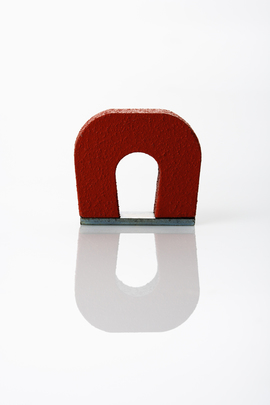
Magnets Throughout the Classroom
When introducing preschool students to magnets, explain that magnetic objects will attach on their own to some, but not all, types of surfaces. Children can discover for themselves the surfaces that attract magnets:
Dancing String
Attach something metal to a string. Hang the string from a table or the ceiling. Let your children use a magnet to make the objects dance.
What Does a Magnet Stick To
Have the children decorate tongue depressors or Popsicle sticks. Put a piece of magnet tape on the stick. Next take your children on a walk around the school to see what the magnet sticks will stick to.
Magnetic Pans
Fill cupcake pans with sand. Put different metal objects in the sand. Cover the top with something so that the children cannot get to the sand. Finally, give your children magnetic wands to move the metal objects around with.
Magnet Cars
When introducing preschool students to magnets, explain that magnetic objects will attach on their own to some, but not all, types of surfaces. Children can discover for themselves the surfaces that attract magnets:
- Encourage children to test different surfaces throughout the room to see where their magnets will stick. Examples of surfaces that can be used in this experiment include wooden table tops, steel doors or walls, carpet, and metal chair legs.
- Each time a new surface is tested, ask the children the question "Does the magnet stick to the ____?". After the experiment is finished, briefly explain how and why magnets are attracted to types of metal.
Dancing String
Attach something metal to a string. Hang the string from a table or the ceiling. Let your children use a magnet to make the objects dance.
What Does a Magnet Stick To
Have the children decorate tongue depressors or Popsicle sticks. Put a piece of magnet tape on the stick. Next take your children on a walk around the school to see what the magnet sticks will stick to.
Magnetic Pans
Fill cupcake pans with sand. Put different metal objects in the sand. Cover the top with something so that the children cannot get to the sand. Finally, give your children magnetic wands to move the metal objects around with.
Magnet Cars
- Attach bar magnets to the fronts of small toy cars with masking tape.
- Make sure that the magnets are attached, so that some will repel and some will attract.
- Let the children play with the cars.
- Ask them to roll two cars toward each other. What happens?
- Can they figure out a way to push a car without touching it?
